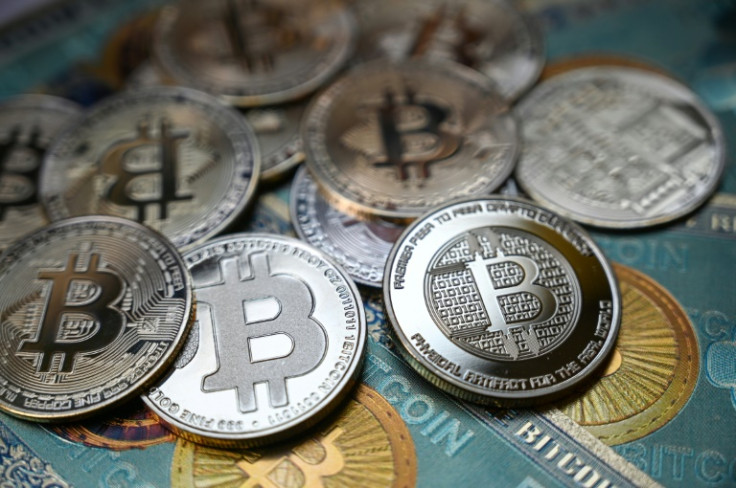Stocks Rally As Bonds And Bitcoin Reverse Course On Inflation Worries, Profit-taking — What Is Next

Stocks staged a solid rally Tuesday as Bitcoin and bonds reversed course on hot inflation numbers and profit-taking.
At 4 p.m., the S&P 500 was at 5,175.24, up 1.12%; the Dow Jones was at 39,005.64, up 0.61%; and the tech-heavy Nasdaq was at 16,265.64, up 1.54%.
Traders and investors warmed up to stocks after a few days of selloffs that lowered valuations, providing better entry points for momentum stocks.
Then, Oracle Corporation had solid earnings. It confirmed the narrative that technology spending remains robust, shrugging off a surprise on the inflation front.
The March Consumer Price Index (CPI) — a measure of the average change over time in the prices paid by urban consumers for a market basket of consumer goods and services — rose 0.4% in February, above market expectations of 0.3%.
"Two months into the year, the disinflation theme has yet to bear any meaningful fruit," said Jason Pride, Chief Investment Officer — Private Wealth, Managing Director at Glemmede Trust Company. "Both the headline and core CPI for February printed at 0.4% month-over-month gains, right on consensus for headline and a touch hotter for the core. Aside from modest declines in new vehicles and medical care services, the increase was remarkably broad-based among major categories."
The situation was quite different in the bond market. It failed to shrug off the inflation surprise, with lower bond prices and higher yields. The benchmark 10-year bond ended the trading session at 4.16%, up from 4.09% a day earlier, reversing the downtrend of the previous week.
The higher-than-expected inflation numbers make it less likely that the Fed will cut interest rates sooner rather than later.
"February's inflation report was hot, with the headline results coming in above economists' expectations," Bret Kenwell, US Options Analyst at eToro, said. "This report underscores that the Fed's fight to beat inflation below 2% will be challenging, as the 'stickier' components — like shelter — remain stubborn," he added.
Morgane Delledonne, Global Head of Investment Strategy, said, "The current risks for investors are skewed toward a delay for the first Fed funds rate cut beyond June – which is what the market is currently pricing in."
"Chair Powell stressed the Fed's focus on three main items of the CPI inflation, which are food, transportation, and housing inflation, as having the most damaging effects on Americans' wealth," Delledonne added.
With interest rate cuts pushed further into the future, bond traders and investors are taking time to commit funds to the long end of the yield curve.
Meanwhile, rising bond yields make highly speculative assets like Bitcoin less appealing, which gave up early gains to close down 2% for the day. The digital currency has been rallying to new highs in the last few days, and the prospect of deferred interest rate cuts has given traders an excuse to take some profits off the table.
Still, Lucas Kiely, Chief Investment Officer at Yield App, believes that Bitcoin's momentum is too strong to come to a halt by transient macro news. "This is no different from last month, when Bitcoin – and other risk assets – barely wavered at U.S. inflation coming in higher than expected, maintaining their upward trajectory as if a March rate cut was on the cards," he said.
"More indicative still of crypto's newfound resilience to macro and regulatory pressures was the aggressive advertising of BTC spot ETFs over a month before their approval by the SEC," Kiely added.
As for stocks, Thomas Samuelson, CFA, CMT, Chief Investment Officer Vineyard Global Advisors, sees several factors, other than inflation, coming into play in the weeks ahead, like the stock market's short-term overbought condition.
Samuelson is also concerned with rising bond yields that may not support stocks.
"Bonds may also have to contend with other crosswinds, such as the results of the U.S. Treasury auctions, as in initial bounce in the UST 10-year bond price (2 bps drop in yield) in the wake of today's inflation report was reversed to a five bps increase in yield (to 4.16%) following a slightly disappointing 10-year Treasury auction later in the day (fewer buyers than was expected)," he said.
© Copyright IBTimes 2025. All rights reserved.






















